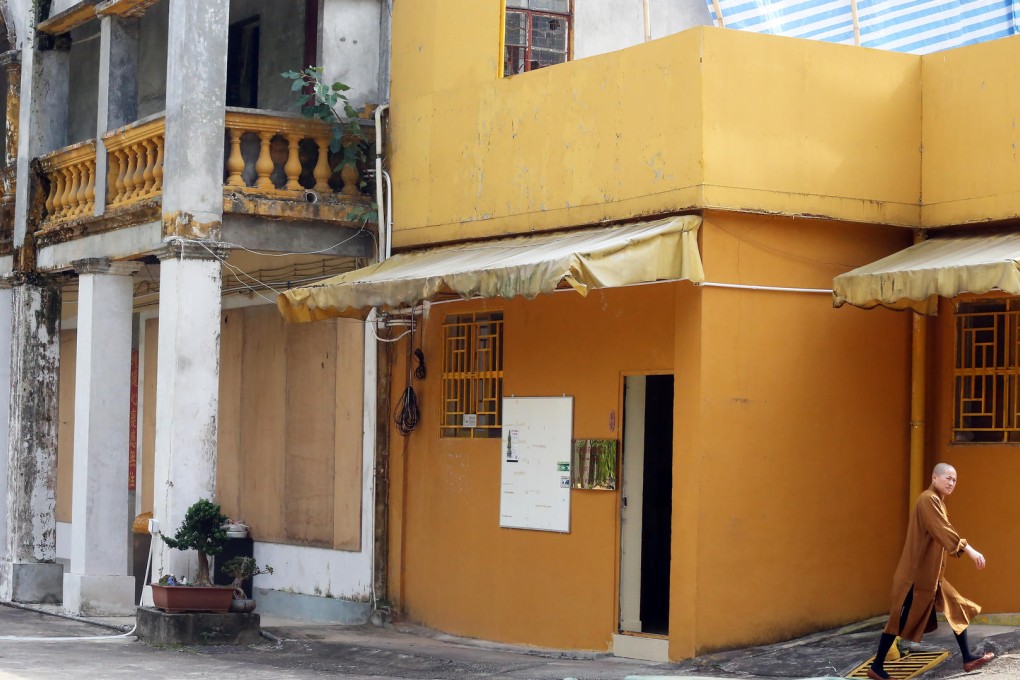Row over management of Hong Kong monastery sparks calls for rethink of plan to scrap Chinese temples law

Allegations of mismanagement at a monastery in Tai Po have reignited debate over an 87-year-old law under which the government has the power to close and seize the assets of Chinese temples, which is set to be relaxed under a legislative amendment to be tabled next year.
The Buddhist Ting Wai Monastery in Tai Po is embroiled in controversy after one of its directors, Mary Jean Reimer, moved last week to freeze its bank accounts amid questions over its use of millions of dollars in donations. Its abbess, Sik Chi Ding, and a monk, Ru Zhi, were arrested by the Immigration Department amid allegations they were involved in a bogus marriage.
The scandal erupted amid a review by the Home Affairs Bureau of the Chinese Temples Ordinance, enacted in 1928 to curb rampant fraud by fake religious institutions. Under it, all Chinese temples - the definition of which includes Buddhist and Taoist monasteries and nunneries - must register with the government. The Chinese Temples Committee, headed by the secretary for home affairs, has the power to force a temple to surrender its assets and close if wrongdoing is discovered. There is no such law governing other religious institutions.
In practice, however, only about 350 of the estimated 600 Chinese temples in the city have registered in accordance with the ordinance. Ting Wai Monastery is not on the list. It is registered under the Companies Ordinance and has been granted tax exemption as a charity.
Launching a two-month public consultation in March, the bureau said the ordinance was too harsh by modern standards and suggested removing the power to seize assets. A new clause would instead empower the minister to join legal proceedings against temples accused of mismanagement or abusing funds. Mandatory registration would be replaced by a voluntary system.
READ MORE: Buddhist Association distances itself from monastery at centre of row
Civic Party legislator Dr Kenneth Chan Ka-lok, who had cautioned against relaxing regulations, said the bureau should think again in light of the Ting Wai case.